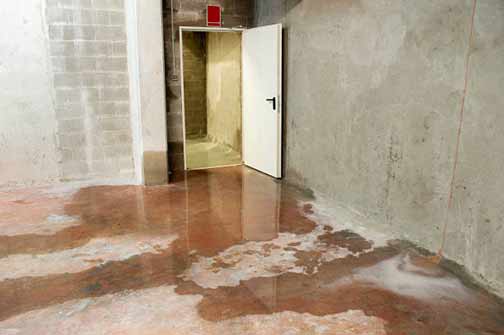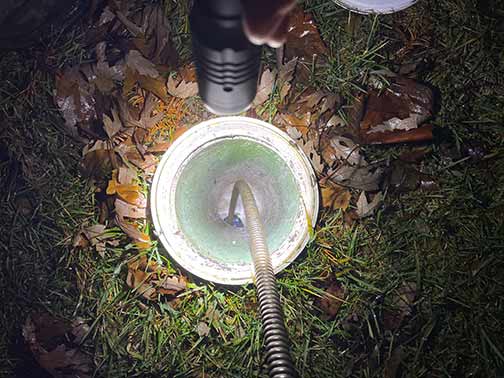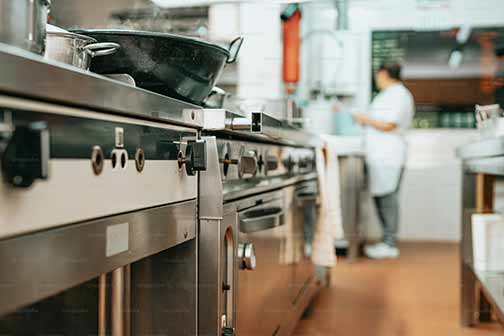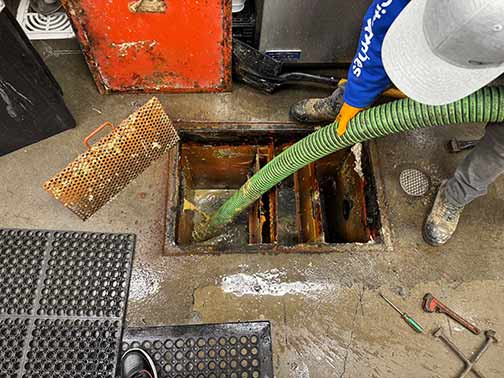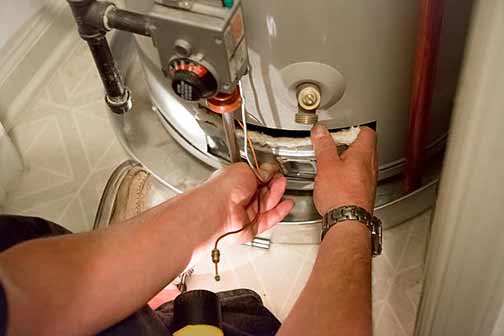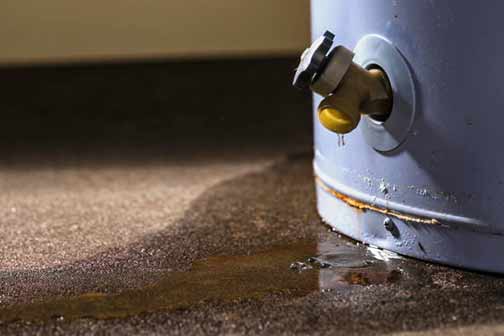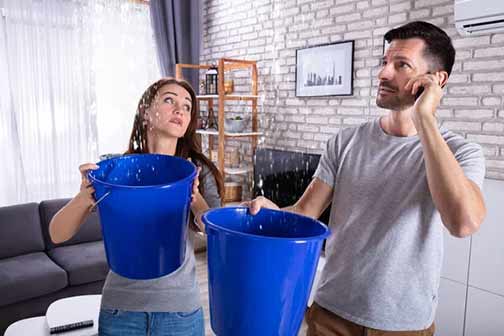
Every homeowner should recognize the critical importance of having a solid emergency plumbing plan in place. Plumbing issues can arise unexpectedly, causing significant damage and inconvenience if not addressed promptly. By preparing your home with a comprehensive emergency plumbing plan, you can mitigate the risks and ensure that you are ready to handle any plumbing emergency efficiently and effectively.
Plumbing emergencies can lead to severe water damage, structural issues, and costly repairs. The consequences of unaddressed plumbing problems can be extensive, affecting not only the physical structure of your home but also your peace of mind. An emergency plumbing plan serves as a proactive measure to protect your home and family from the potential chaos and financial strain that plumbing emergencies can bring.
Identifying Potential Plumbing Emergencies
To prepare your home for unforeseen plumbing issues, it is essential to identify potential plumbing emergencies. Common plumbing emergencies include burst pipe repairs, clogged drains, water heater failures, and sewer backups. Understanding the signs of these issues, such as water leaks, slow drainage, unusual noises, and foul odors, can help you detect problems early and take appropriate action.
Burst pipes can occur due to freezing temperatures, corrosion, or excessive water pressure. Clogged drains are often caused by the accumulation of debris, grease, or foreign objects. Water heater failures can result from sediment buildup, faulty components, or age. Sewer backups can be triggered by blockages, tree root intrusion, or damaged sewer lines. Recognizing these potential emergencies and their warning signs allows you to respond promptly and prevent further damage.
Creating a Comprehensive Emergency Plumbing Kit
One of the first steps in preparing for plumbing emergencies is to create a comprehensive emergency plumbing kit. This kit should include essential tools and supplies such as a pipe wrench, plunger, plumber’s tape, pipe repair clamps, a bucket, and rubber gloves. Having these items readily available can help you address minor plumbing issues quickly and prevent them from escalating into major problems.
Additionally, consider adding a flashlight, a multi-tool, a drain snake, and a wet/dry vacuum to your emergency plumbing kit. A flashlight can be invaluable during power outages or when working in poorly lit areas. A multi-tool offers versatility for various tasks, while a drain snake can help clear stubborn clogs. A wet/dry vacuum can be used to remove water from flooded areas, minimizing water damage and making cleanup easier.

One of the first steps in preparing for plumbing emergencies is to create a comprehensive emergency plumbing kit.
Establishing a Relationship with a Reliable Plumber
Building a relationship with a reliable emergency plumber is a crucial aspect of your emergency plumbing plan. Research and identify a reputable plumber in your area who offers emergency services. Keep their contact information easily accessible so that you can reach out to them in case of a plumbing emergency. Establishing this relationship in advance ensures that you have a trusted professional to rely on when you need immediate assistance.
When selecting a plumber, consider factors such as their experience, qualifications, customer reviews, and response times. Look for a licensed and insured plumber who has a track record of providing quality service. Having a reliable plumber on standby gives you peace of mind, knowing that expert help is just a phone call away during a plumbing crisis.
Regular Maintenance and Inspection of Plumbing Systems
Regular maintenance and inspection of your plumbing systems are essential to prevent emergencies. Schedule routine inspections with a professional plumber to check for potential issues such as leaks, corrosion, and blockages. Additionally, perform simple maintenance tasks yourself, such as cleaning drains, checking for leaks, and ensuring that faucets and fixtures are in good working condition. Proactive maintenance can help you identify and address problems before they become emergencies.
During professional inspections, plumbers can use advanced tools and techniques to detect hidden issues that may not be visible to the untrained eye. For example, they can perform camera inspections of sewer lines, pressure tests, and water quality assessments. By addressing minor issues early on, you can prevent them from developing into costly and disruptive emergencies.
Knowing How to Shut Off Your Water Supply
In the event of a plumbing emergency, knowing how to shut off your water supply is crucial. Familiarize yourself with the location of your main water shut-off valve and learn how to operate it. In addition, identify the individual shut-off valves for sinks, toilets, and other fixtures. Being able to quickly shut off the water supply can prevent extensive water damage and give you time to address the issue or call for professional help.
Practice turning off the main water valve and individual shut-off valves periodically to ensure that they are functioning correctly. In some cases, shut-off valves can become stiff or corroded over time, making them difficult to operate during an emergency. Regularly exercising these valves helps keep them in good working condition and ensures that you can act swiftly when needed.

Being able to quickly shut off the water supply can prevent extensive water damage and give you time to address the issue or call for professional help.
Developing a Response Plan for Common Plumbing Emergencies
Developing a response plan for common plumbing emergencies can help you act swiftly and effectively. For example, in the case of a burst pipe, your plan should include shutting off the water supply, draining the remaining water, and calling a plumber. For a clogged drain, your plan might involve using a plunger or a drain snake to clear the blockage. Having a clear response plan for various scenarios ensures that you can handle emergencies with confidence.
Consider creating a written response plan and posting it in a visible location, such as near the main water shut-off valve or in the kitchen. This plan should outline the steps to take for different types of plumbing emergencies, including contact information for your reliable plumber. Having a written plan ensures that everyone in the household knows what to do and can follow the necessary procedures during an emergency.
Educating Household Members on Emergency Procedures
It’s important to educate all household members on emergency plumbing procedures. Ensure that everyone knows how to shut off the water supply, use basic plumbing tools, and follow the response plan for different emergencies. Conduct regular drills and provide clear instructions to ensure that everyone is prepared to act quickly and effectively in the event of a plumbing emergency.
Involving household members in emergency preparedness fosters a sense of responsibility and teamwork. Teach children and other family members how to identify potential plumbing issues and encourage them to report any signs of trouble immediately. By working together, you can create a safer and more resilient home environment.
Utilizing Technology for Early Detection
Advancements in technology can aid in the early detection of plumbing issues. Consider installing smart leak detectors and water sensors in key areas of your home. These devices can alert you to potential leaks and water damage, allowing you to take immediate action. Additionally, some smart home systems can automatically shut off the water supply when a leak is detected, providing an added layer of protection.
Smart leak detectors and water sensors can be placed near appliances, water heaters, under sinks, and in basements. These devices often connect to your smartphone or home automation system, sending real-time alerts when a leak is detected. Some advanced systems even offer remote monitoring and control, allowing you to shut off the water supply from anywhere, providing peace of mind when you are away from home.

Knowing your insurance coverage can help you make informed decisions and ensure that you are financially protected in the event of a plumbing emergency.
Understanding Your Home Insurance Coverage
Review your home insurance policy to understand what coverage you have for plumbing emergencies. Some policies may cover water damage caused by sudden and accidental plumbing issues, while others may not. Knowing your coverage can help you make informed decisions and ensure that you are financially protected in the event of a plumbing emergency.
Contact your insurance provider to clarify the details of your coverage and inquire about any additional endorsements or riders that may be available for plumbing-related incidents. Understanding your policy’s terms and conditions allows you to take appropriate steps to protect your home and finances. In some cases, you may need to purchase separate flood insurance if your area is prone to flooding.
Preparing for Extreme Weather Conditions
Extreme weather conditions, such as freezing temperatures and heavy rainfall, can exacerbate plumbing issues. Take preventive measures to protect your plumbing system during such conditions. Insulate exposed pipes to prevent freezing and bursting, and ensure that gutters and downspouts are clear to prevent water backups. Being proactive during extreme weather can help you avoid plumbing emergencies.
During cold weather, consider leaving faucets dripping slightly to prevent pipes from freezing. Open cabinet doors under sinks to allow warm air to circulate around pipes. In areas prone to heavy rainfall, ensure that your sump pump is in good working condition and consider installing a sump pump battery backup system to prevent basement flooding. Taking these precautions can help safeguard your plumbing system against weather-related damage.
Staying Informed About Local Plumbing Codes and Regulations
Stay informed about local plumbing codes and regulations to ensure that your plumbing system is compliant. Non-compliance can lead to plumbing issues and potential fines. Familiarize yourself with the requirements for plumbing installations, repairs, and maintenance in your area. Adhering to local codes and regulations can help you maintain a safe and efficient plumbing system.
Local plumbing codes are designed to ensure the safety and functionality of plumbing systems. They cover various aspects, including pipe materials, installation methods, backflow prevention, and fixture requirements. By staying informed and following these codes, you can avoid potential legal issues and ensure that your plumbing system operates efficiently and safely.
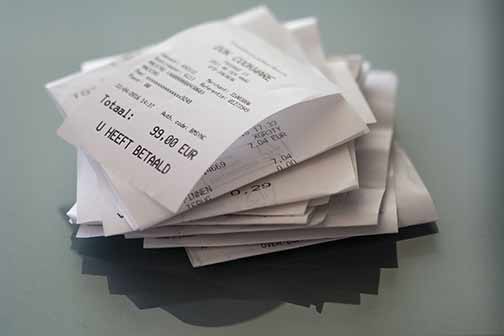
Keep receipts, invoices, and reports from plumbers, along with notes on any DIY maintenance tasks you perform.
Documenting and Keeping Records of Plumbing Work
Maintain detailed records of all plumbing work performed in your home. This includes repairs, maintenance, and inspections. Documenting this information can help you track the history of your plumbing system and identify recurring issues. Additionally, having records readily available can be useful when selling your home or filing insurance claims related to plumbing emergencies.
Keep receipts, invoices, and reports from plumbers, along with notes on any DIY maintenance tasks you perform. Organize these records in a dedicated folder or digital file for easy access. Having a comprehensive record of your plumbing work can provide valuable insights into the health of your plumbing system and help you make informed decisions about future repairs and upgrades.
Budgeting for Plumbing Emergencies
Set aside a budget for plumbing emergencies to ensure that you are financially prepared. Plumbing issues can be costly, and having a dedicated emergency fund can alleviate the financial burden. Consider saving a portion of your monthly income specifically for unexpected plumbing repairs and maintenance. Being financially prepared can help you address emergencies promptly without compromising your financial stability.
In addition to setting aside funds for emergencies, consider investing in a home warranty that covers plumbing systems. A home warranty can provide additional financial protection and peace of mind by covering the cost of repairs or replacements for covered plumbing components. Review the terms and coverage of the warranty to ensure it meets your needs and complements your emergency plumbing plan.
Conclusion: Ensuring Peace of Mind with a Solid Emergency Plumbing Plan
By implementing a solid emergency plumbing plan, you can prepare your home for unforeseen plumbing issues and ensure peace of mind. From creating an emergency plumbing kit and establishing a relationship with a reliable plumber to regular maintenance and educating household members, each step plays a crucial role in safeguarding your home. Stay proactive, informed, and prepared to handle any plumbing emergency with confidence and efficiency.
Taking these measures not only protects your home and property but also enhances your overall well-being. Knowing that you are prepared for plumbing emergencies allows you to focus on enjoying your home without the constant worry of unexpected issues. By investing time and effort into developing a comprehensive emergency plumbing plan, you can achieve a sense of security and resilience, ready to face any plumbing challenge that comes your way.
